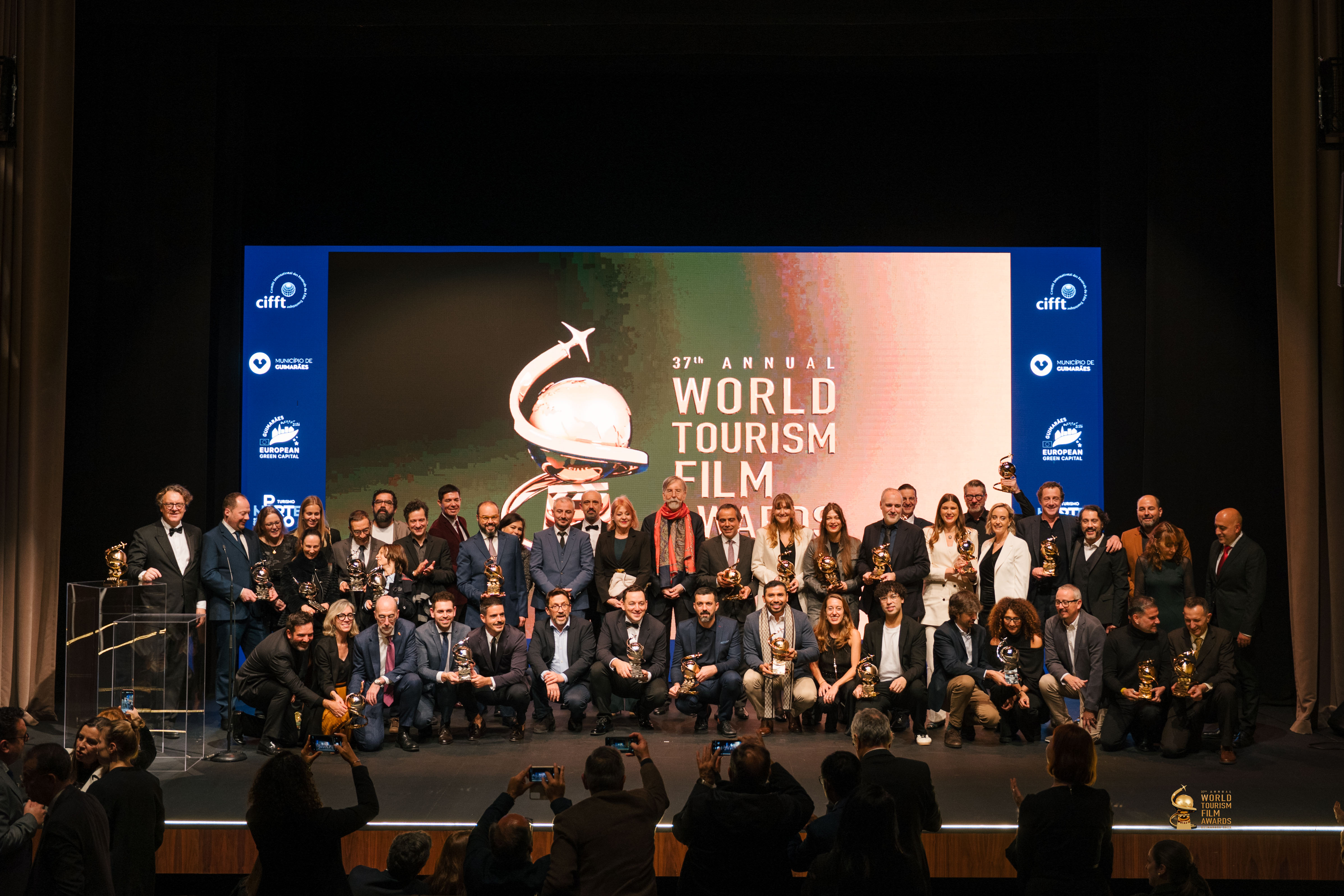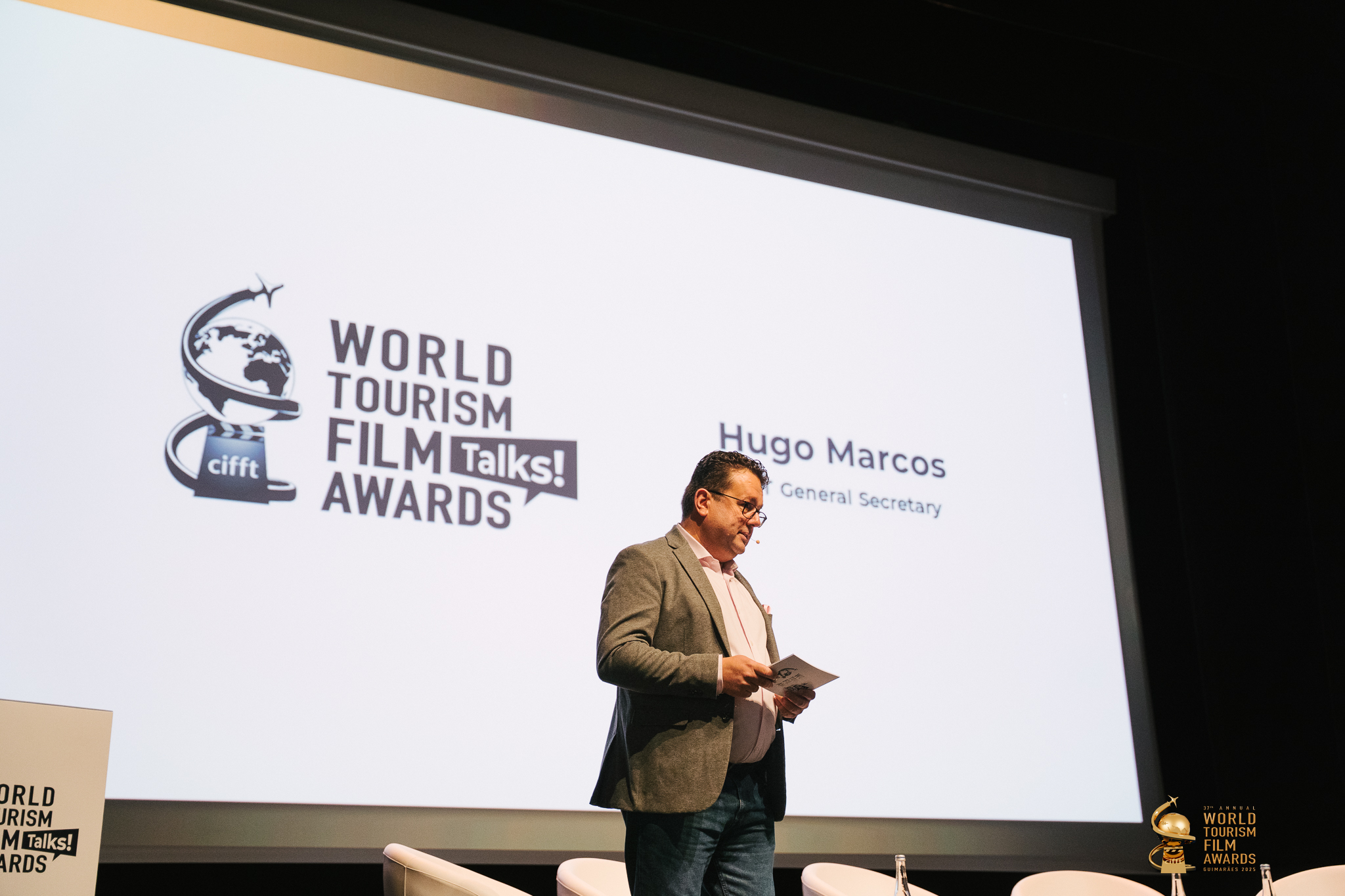Teodora Marinska is the Chief Operating Officer and Head of Public Affairs at the European Travel Commission (ETC). Leading the organization’s climate action and sustainability agenda, she works to position Europe as a premier travel destination while ensuring environmental stewardship and community engagement remain at the core of its strategy.
This year, she is also a member of the GreenWorking Awards Jury, recognizing video productions that showcase tourism as a true force for good. In this interview, Teodora reflects on the industry’s accelerating shift towards sustainable practices, the evolving expectations of travelers, and the role of communication, innovation, and collaboration in shaping the future of travel.

1. How have you seen the tourism industry evolve in recent years in terms of its commitment to and implementation of sustainable practices?
The tourism sector has increasingly embraced sustainability. We’ve observed significant changes in how destinations approach their operations. Everyone now recognises that safeguarding nature and supporting local communities is not only the ethical choice but also crucial for long-term viability.
At the European Travel Commission (ETC), we are proud to back this shift. More destinations are adopting regenerative tourism, which aims to help local areas flourish. We’ve also set bold targets, such as halving our organisation’s emissions by 2030 and achieving net zero by 2050. While challenging, we’re making substantial progress.
2. In your opinion, how are travelers’ expectations around sustainability changing, and how should destinations respond to this shift?
People want authentic experiences. They’re interested in local food, crafts, and hidden gems that show a place’s real character. And they appreciate it when destinations make an effort to avoid overcrowding or keep tourism from driving up prices for residents.
In addition, travellers are increasingly conscious of climate change. Over 80% of Europeans report that the changing climate affects their travel choices. They check weather forecasts more carefully, steer clear of very hot locations, and opt for cooler destinations or travel during off-peak seasons. Destinations must adapt to this shift by providing more flexible, eco-friendly options, such as encouraging travel in spring or autumn, and demonstrating their environmental efforts.
3. From your position at the European Travel Commission, how is the role of communication changing in advancing sustainable tourism across Europe?
Communication is increasingly centred around storytelling and shared values. It’s no longer just about showcasing scenic views or popular landmarks, but rather explaining why a destination is worth visiting and how to approach local communities and the environment respectfully.
At ETC, we share these stories through campaigns that promote responsible behaviours, such as using public transport, traveling during off-peak times, or exploring less crowded sights. Additionally, we use communication to support destinations facing challenges, such as extreme weather events, helping them remain resilient.
4. Video content has become a key tool in tourism promotion. How effective is video in raising awareness and encouraging sustainable practices among travellers and industry stakeholders?
Video is incredibly powerful because it brings stories to life. Watching how a town in Germany has adapted its tourism to cope with less snow, or how a city like Barcelona is planting trees to fight heat, really helps people understand what sustainability looks like on the ground.
Video is also a game-changer in inspiring people to care and to act. Videos help spark curiosity and show that making sustainable choices can still lead to amazing travel experiences.
5. The GreenWorking Awards highlight best practices in sustainable tourism promotion. In your view, how do such awards catalyze meaningful change within the industry?
Such awards help share great ideas that others can learn from, and they encourage more destinations to get creative and take action. It’s also a great way to give credit where it’s due and show the wider public that tourism can be a force for good. When we celebrate success stories, we help build momentum across the whole industry.
6. How does the European Travel Commission collaborate with its members to embed sustainability as a core, strategic approach within the European tourism ecosystem?
We work hand-in-hand with national tourism boards to ensure that sustainability is part of everything, from planning and promotion to crisis response and infrastructure.
Our Roadmap for National Tourism Organisations Towards Climate Action is a practical guide that helps destinations create their own climate plans. We also run workshops and share research to help members tackle big challenges, like extreme weather, overtourism, or resident concerns.
We don’t do this alone—our work is in close collaboration with partners like NECSTouR and CityDNA, who bring regional and city perspectives. Together, we’re hoping to build a more balanced tourism model.
7. Looking ahead, what are your priorities for the ETC to support a more sustainable European tourism sector?
Our goal is to make sustainability part of the everyday travel experience not just a trend, but the new standard. Our top priorities are to help destinations get ready for climate challenges, support campaigns that encourage visitors to travel more responsibly, promote off-season travel to reduce pressure on popular spots and boost local economies year-round.
The GreenWorking Awards are an initiative of CIFFT and normmal, with the participation of UN Tourism. Entries are now open until September 15. Submit your work now.



